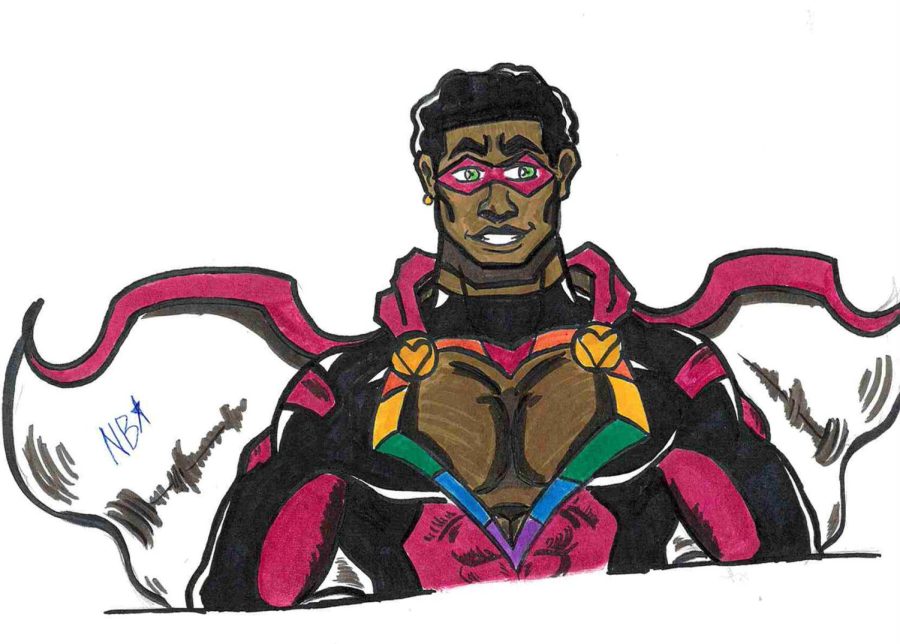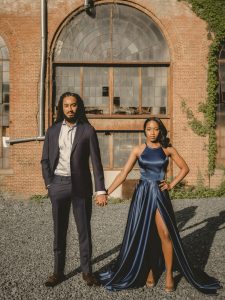OPINION: What LGBTQ+ representation means for future generations
November 15, 2022
Earlier this month, the New York Comic Con included a variety of news regarding comics/graphic novels, gaming, movies, and TV shows. In this sea of news came the first official clips of the third and final season of the Disney Channel original series, “The Owl House.” One scene in particular, however, caught everyone’s attention.
The scene showcased the main character, a 14-year-old by the name of Luz, who shows a presentation to her mother in which she comes out as bisexual. When I first saw the clip, I was astonished. Seeing a character openly say they were bisexual and seeing the bisexual pride flag showcased made me feel quite sentimental.
When I first came out, all I got in response from some family members was that “I was confused” and that I was “simply going through a phase”. Thanks to the representation showcased in media, the idea of bisexuality being a “phase” or “confusion” would decrease and would be replaced by support and although some might have questions, they would mean it with the purpose of wanting to understand better rather than coming across as judgemental.
For me, as a bisexual woman, this also made me have bittersweet feelings. This new generation of children that were watching this program could potentially do something that I never could have done: not be afraid to come out and not feel ashamed about their sexuality.
Many thoughts were crossing my mind when I saw that scene, and two of those thoughts were the following: “where was this representation when I was younger?” and “this new generation truly is lucky.”
This made me wonder about other forms of children’s media and how they have handled LGBTQ+ representation, and through some digging I found that this new generation has had quite an amount of it.
Recently the “Monster High” brand has given us representation in the form of making one of the characters non-binary, and they exclusively use they/them pronouns. Another example is the preschool television series “Blue’s Clues” where last summer they showcased a video of a “Pride Parade” that showcased different examples of LGBTQ+ families. It featured a song that was sung by the famous drag star Nina West. It goes to show how far we have come when it comes to representation.
Once again, I never saw this representation when I was a child, and I’m glad it’s finally happening. I’m glad that, for example, my younger brother can grow up with this representation, as it will help him better understand that not everyone’s the same and that there is no problem with that.
When it comes to this representation, one might ask: what does this mean for the new generation? For me, it means that this new generation will have a much better understanding when it comes to the LGBTQ+ community. These children will not see these topics as some form of ‘taboo’ and will be much more accepting. Because these children will have a much better understanding, they will now know who exactly they might be. They might not have the same doubts I (and many others) have had.
Even if they have doubts, which is perfectly normal, they will have an increased opportunity to have a clearer picture of what they are going through and will understand. People might say that they are far “too young” to understand these concepts. But why are they too young to know about all these different sexualities and identities? The reality is, however, that children are never too young to understand the different sexualities and identities.
If anything, it’s great that children can now learn and understand more about different sexualities and gender identities that exist in our society. I wish I had this representation when I was a child. It would have helped me understand that my sexuality is perfectly normal. I bet many other members of the LGBTQ+ community feel the same way.
It would have been amazing for gays and lesbians to understand that feeling attraction toward the same gender was a normal thing. It would have been amazing for transgender people and non-binary people to understand that there was nothing wrong with how they viewed their gender identity.
I, for one, am incredibly happy that this new generation of children will have a better understanding of the LGBTQ+ community. I may have not gotten this representation as a young child, but I am sure glad that this new generation will have a greater opportunity to get that experience.







